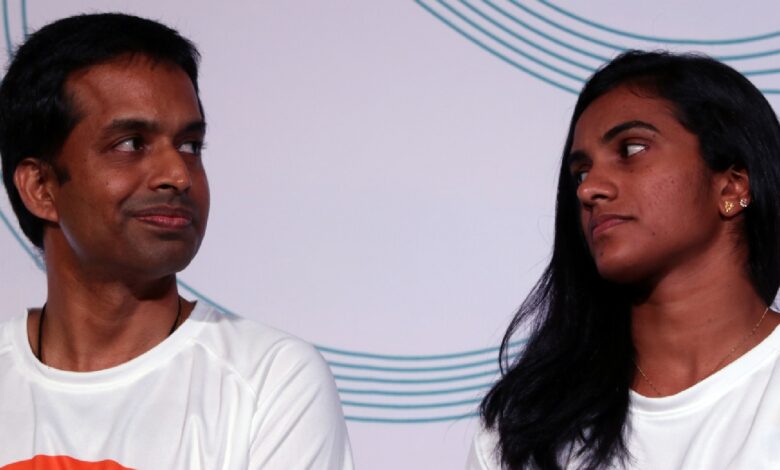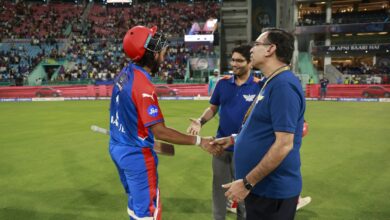Coach Gopichand’s reality check for middle-class parents: Investing everything in sport is big risk | Badminton News

“All I’m saying is, don’t go all in, hoping they will be the next Sachin and earn Rs 200 crore. It won’t happen 99 per cent of the time.”That’s the reality check Pullela Gopichand — India’s badminton national head coach and the man credited with shepherding many successful careers, from Saina Nehwal to PV Sindhu and Kidambi Srikanth — has for parents in a sports landscape riddled with uncertainties.
In an interview to The Indian Express, Gopichand, the man responsible for making India a badminton powerhouse, spoke of the realities of life that even the most elite of India’s athletes (barring, possibly, the cricketers) face when they step out of their brightly lit sports arenas — from the shrinking of employment options that offer financial mobility to the lack of growth in jobs under the sports quota and the prevalence of casual disrespect at the workplace.
Story continues below this ad
“Someone like Tanisha Crasto (Top 30 in badminton mixed doubles) or Treesa Jolly (women’s doubles Top 10) are giving it their all. But when they come and ask me, ‘koi job hai?’, it saddens me. Treesa is two-time All England semi-final, but if they still have to think ‘I need a job’, and jobs are elusive and disappearing, then something is majorly wrong. Even top players… Lakshya Sen (World Championship bronze medal) got a job only a year-and-half ago. Satwik Reddy-Chirag Shetty (former world No 1s) also had to win many titles before they were considered for jobs,” Gopichand said.
It is this bleak prospect that forces Gopi to warn those looking at sport as a possible career path for their children. “If you are a middle-class parent, where you value financial security, investing everything into sport is a big risk,” Gopi says.
He also talks about the pain he feels when he sees the post-retirement work-lives of some of the country’s top sporting stalwarts. “You might be the most talented athlete, but life for most can be worse than the youngest railway civil services (officer) they are reporting to. I’ve seen a 55-year-old former Asiad medall having to bow and say ‘Yes, sir’ to a 24-year-old junior-most entry-level guy, who was a civil services IAS reject. You pick five phone numbers on your contact l (of top sportspersons), call them and ask them, ‘How is your officer?’ and they will say ‘torture ho rahaa hai (it’s torture)’,” he said.
Career progressions are also bleak in Public Sector Undertaking (PSU) jobs. “Sometimes the highest ceiling of their careers is Office Chief Superintendent, below the joining rank of some entry-level civil services officers. Then they are additionally told, ‘Be happy you at least have a job’. They are repeatedly disrespected and told ‘masti se sports quota mein aa gaye (you had it easy)’. It’s humiliating,” he said.Story continues below this ad
According to Gopi, this work culture of contempt doesn’t spare even the most-celebrated sports stars. “Seeing Sakshi Malik, one of only two Rio medalls, and the Phogat sers, who have World Championship medals, having to bow before officials, really angered me. Athletes and Olympians… our entire lives are focus-driven. The day sport leaves us, we struggle to find excitement in anything. For someone who hasn’t been there, a ticket collector’s job or being president of a federation and sitting in a planning meeting in Delhi might mean a lot. But for us, even a TC’s (job) is very tough. People don’t understand the struggle to stay motivated (in such jobs) and having to say ‘Yes sir, yes sir’ to IAS officers even when we are talking about sports,” he explained.
He said Indian athletes were hardly ever trained to understand that education and sport need to go hand in hand. “Skilling and exit opportunities for athletes are very important to equip them for life ahead. After that, there is a need to reserve spots for us at the board level. Let it be sportsperson vs sportsperson competing for that seat at the high table. Have 5 at GM level, 5 at director levels, not a restricted ceiling of a Railways clerical job. The country that celebrates medals needs to handhold athletes into the next stage — let us go to IAS, IRS institutes and learn the ropes for two years. If others get in at 60 marks, make concessions for us to get in at 50,” he added.
He said the call to get millions into sports and win medals needed tempering. “I am not talking of the 150 people who might go to the Olympics and manage to get into coaching. But the rung below them is 10,000 and growing in the last 10 years. I’m concerned about the respect that Sakshi or someone like Manu (Bhaker) won’t get. Manu won double medals, but is just one of 178 deputy directors in the state,” he said.




